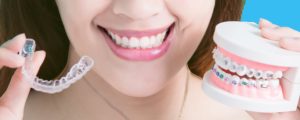Did you know around 12% of Americans experience TMJ disorders at least once in their life? TMJ stands for Temporo Mandibular Joint, and these joints are situated on both sides of the face. Moreover, these joints connect the jawbone’s lower part to the skull, helping us chew. However, TMJ disorder can trigger painful symptoms such as jaw aches, earaches, headaches, trouble opening the mouth, and more.
While these symptoms may disappear without treatments, in other cases, patients might require TMJ treatment to alleviate symptoms. Here are some TMJ treatment options that dentists recommend.
TMJ Disorder Medications
Besides other nonsurgical TMJ treatments, the following medications can help alleviate pain caused by TMJ disorders:
- Pain Relievers: If over-the-counter(OTC) pain medication isn’t sufficient to alleviate TMJ pain, your dentist may prescribe other pain relievers, like prescription-strength ibuprofen, for a short period.
- Muscle Relaxants: These drug types are occasionally used for a couple of days or weeks to ease the pain triggered by TMJ disorders due to muscle spasms.
- Tricyclic Antidepressants: Drugs, such as amitriptyline, are usually used for treating depression but can be used for pain relief, insomnia, and bruxism control as well.
Therapy for TMJ Disorders

There are also non-drug therapies used to help TMJ disorders. These therapies include:
- Physical Therapy:Physical therapy such as exercise for jaw strengthening and shaping helps ease TMJ disorders. Besides these, ultrasound and other treatments are also used.
- Mouth Guards or Oral Splints: Although it’s tough to understand the benefits, individuals who experience jaw aches due to TMJ disorders often wear firm or soft devices, such as occlusal guards, over their teeth.
- Counseling:Another treatment individuals with TMJ disorders opt for is counseling since it helps people understand the factors that trigger or worsen the pain. As a result, it helps individuals avoid them. Some examples are grinding, teeth clenching, fingernail biting, etc.
Surgical or Other Procedures for TMJ Disorders
When other TMJ treatments aren’t effective, dentists might suggest surgical or other procedures, such as:
- TMJ Arthroscopy: Sometimes, arthroscopic surgery can effectively treat some TMJ disorder types. This procedure involves placing a tiny thin tube into the joint space, inserting an arthroscope, and then using various small surgical instruments for the treatment. TMJ arthroscopy has lower complications and risks than other treatments but has certain limitations.
- Injections: Corticosteroid injections can help some people with TMJ disorders. Occasionally, botulinum toxin type A injections in the jaw muscles can help alleviate pain caused by TMJ disorders.
- Arthrocentesis: Anthrocentesis is a partly invasive procedure that involves inserting small needles in the joint so the liquid can wash away all inflammatory byproducts.
Get TMJ Treatment in MI, with Us!
Do you need professional TMJ treatment in Royal Oak, Bingham Farms, Franklin, Beverly Hills, Farmington Hills, Bloomfield Hills, Southfield, and West Bloomfield, MI? Let the professionals at Advanced Dentistry Center help you out.
Advanced Dentistry Center is a Michigan-based professional dental treatment provider offering top-notch dental services, such as TMJ treatment, oral surgery, dental implants
implants, cosmetic dentistry, dental veneers, etc. Reach out to us today to learn more about our TMJ treatment in Bingham Farms, Franklin, Beverly Hills, Farmington Hills, Bloomfield Hills, Southfield, and West Bloomfield, MI.

